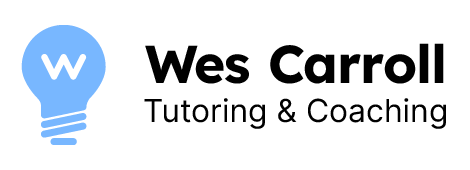
My friend and colleague Jai Flicker just posted this lovely essay on the time he knew just what to say to a student to make a big difference. His point was that one’s attitude towards work matters a lot. I take away a different point: that there’s more to teaching than knowing the material and knowing how to teach.
Don’t get me wrong. I think that knowing the material and knowing how to teach are both higher bars than we give them credit for. (“Knowing how to teach” is especially tricky, it turns out.) But if teaching is your career, then I think that those two important skills, while necessary, aren’t sufficient on their own.
Most teachers never studied Buddhist philosophy, Qigong, or Non-Violent Communication, but Jai sure did. I think it’s clear from even a casual interaction with Jai that part of what makes him an exceptional educator — his “special sauce” if you will — is his awareness of the effect of emotional state and perspective on outcomes.
For me, it might be focus on effective processes of creative thought (because of my experience in music performance and competitive puzzle-solving), or maybe my love of analogy. Or my great fashion sense* — it’s hard to know these things about yourself. (Indeed, I just asked a few trusted colleagues this question, and learned rather a lot.)
I sure know what it is in others, though. For each of my students and for each of my professional colleagues, I know what makes him or her special — what special sauce each brings to a hurdle, from home schooling to playing first violin; from fearless honesty to boundless patience; from experience as a youth counselor to experience as a corporate executive.
It’s important because of the power of the nudge. Any good educator can help you with the next step, but the right idea, at the right time, presented in the right way: this is what helps you make a huge leap instead of another small step. Great educators try for the leap instead of relying solely on the step.
But how is that done? I think it takes three components, two obvious, and one not: being a good teacher and deep subject knowledge are the table stakes. But it’s outside experience that makes the difference.
Jai has his mindfulness practice; I have competitive puzzle solving; others have other sources of “special sauce.” That’s always been an important part of my teaching practice: “I teach people, not just math” is how I’ve tried to explain it.
And increasingly, that’s the basis for my referrals too: I’m looking to catalyze leaps, and that means knowing my network not just as professionals, but as people. When they go to work, they bring their whole selves, and that’s why they get such better results.
*PS I actually have terrible fashion sense.
– – –
Here’s my favorite one-session story.
Rachel and David came to me because Rachel, a straight-A student for years, just could not crack a B in her precalculus course. Nothing she did was enough; she kept getting docked too many points on tests; her motivation was faltering and so was her meticulousness.
It was apparent that Rachel was a mature and grounded student, and that David was an involved and supportive but not at all “helicoptery” parent.
We talked about the class itself, and the teacher in specific. It came out that the teacher came of age in Soviet Russia towards the end of the Cold War. I know a bit about that culture, because it was a particularly noteworthy time in the history of math competitions, which I coach.
So Rachel and I talked a bit about that period, about the relentless focus on grit, drillwork, and obedience, about the aspects of those qualities that we value in our culture today, and about what a teacher who was a student during that period might bring to her teaching practice — what expectations she might have, and how she might gauge whether students are measuring up as they should.
We looked at one of Rachel’s recent tests through that lens, and instead of undeserved points lost due to unimportant minor mistakes, we both saw warning signs of a student in command of only part of the end-to-end process that leads to reliably correct answers.
About two weeks after that session, I called to find out why they hadn’t booked a second session, and the answer was a delight: it was because Rachel had only gotten an “A” on every homework and quiz since our meeting.
(I later helped her improve her SAT scores, but that’s another story.)



0 Comments